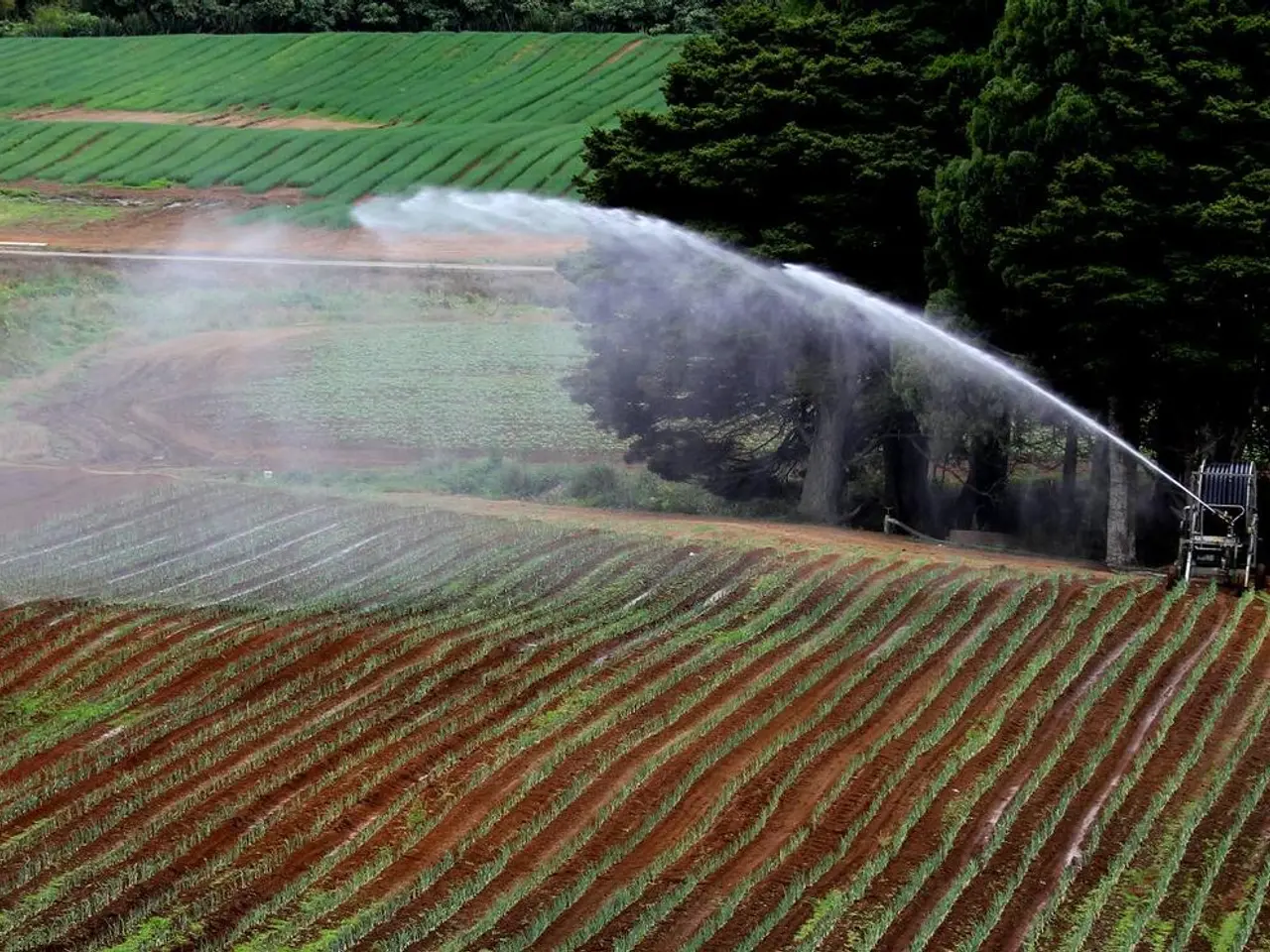Prime Minister Modi Presides Over M.S. Swaminathan Centenary International Conference, Introduces Global Award for Food and Peace Initiatives
In the heart of New Delhi, the M.S. Swaminathan Centenary International Conference was inaugurated by Prime Minister Narendra Modi, marking a significant milestone in the celebration of the life and work of the renowned agricultural scientist, Dr. M.S. Swaminathan.
The conference, themed "Evergreen Revolution: The Pathway to Biohappiness," brought together experts, policymakers, and enthusiasts to discuss and deliberate on sustainable agriculture, biodiversity conservation, climate resilience, and inclusive rural development.
Dr. Swaminathan, the architect of the Green Revolution in India, introduced high-yielding wheat and rice varieties in the 1960s, leading to self-sufficiency in food grains. His contributions extended beyond yield enhancement, as he championed the Evergreen Revolution, focusing on sustainable agriculture practices that conserve biodiversity and empower smallholders, women, and rural communities.
The first recipient of the M.S. Swaminathan Award for Food and Peace, Professor Adenle from Nigeria, was also honoured during the event. The award was launched by the M.S. Swaminathan Research Foundation and The World Academy of Sciences.
Prime Minister Modi applauded the success of the "Viksit Krishi Sankalp Abhiyan" and called it a commendable example of taking technology from lab to land. He emphasised the importance of climate-resilient agriculture, focusing on drought-tolerant, heat-resistant, and flood-adaptive crop varieties. He also urged integrating AI, machine learning, and satellite data into a real-time agricultural decision-support system.
Modi renewed his focus on empowering small farmers, women, and rural communities. He called for expanding solar-powered micro-irrigation, drip systems, and precision agriculture. He also reiterated his support for various flagship schemes such as PM-Kisan, PM Fasal Bima Yojana, PM Krishi Sinchai Yojana, and PM Kisan Sampada Yojana.
The conference highlighted Dr. Swaminathan's foresight in addressing emerging challenges like climate change by promoting drought-resistant and salt-tolerant crops, reviving traditional millets, and innovative ideas like community seed banks and opportunity crops. His pioneering work ensured food security for India and laid the foundation for sustainable and inclusive farming practices.
India, under Dr. Swaminathan's guidance, has achieved significant milestones in agriculture. The country ranks first in the production of milk, pulses, and jute, and second in rice, wheat, cotton, fruits, vegetables, and fish. This agricultural transformation, however, is not just about numbers. It's about ensuring food security, promoting sustainable practices, and empowering rural communities.
Dr. Swaminathan believed that science is not just about discovery, but delivery. He emphasised the need for continuous expert guidance for agri-tech startups and spoke about the recently approved PM Dhan Dhanya Yojana, which aims to uplift 100 districts where agriculture has lagged behind.
The M.S. Swaminathan Centenary International Conference is scheduled from August 7 to 9, and it serves as a testament to Dr. Swaminathan's legacy and India's commitment to sustainable agriculture and rural development.
- The conference, "Evergreen Revolution: The Pathway to Biohappiness," also delved into discussions about health-and-wellness, considering the interconnectedness of human health and environmental sustainability.
- Acknowledging Dr. Swaminathan's work in nutritionally rich crops, attendees at the conference discussed the role of sustainable agriculture in ensuring food-and-drink security for all.
- In line with Dr. Swaminathan's vision, the conference addressed the intersection of science, technology, and business, focusing on innovative solutions in environmental-science that promote clean technologies and renewable energy sources for home-and-garden applications.
- To further enable sustainable rural development, discussions at the conference highlighted the importance of financial support, addressing the need for stable finance mechanisms to help small farmers invest in innovative farming equipment and practices.
- The conference also emphasized the role of education-and-self-development in empowering rural communities, with a focus on inclusive education and skill development programs for women and youth to help them become leaders in the fields of agriculture, livestock, and fisheries.
- The ever-evolving landscape of sports offers a unique opportunity for collaboration between agriculture and fitness-and-exercise. Attendees at the conference discussed the potential of sports events and initiatives to raise awareness about sustainable agricultural practices and promote health-and-wellness in rural communities.




